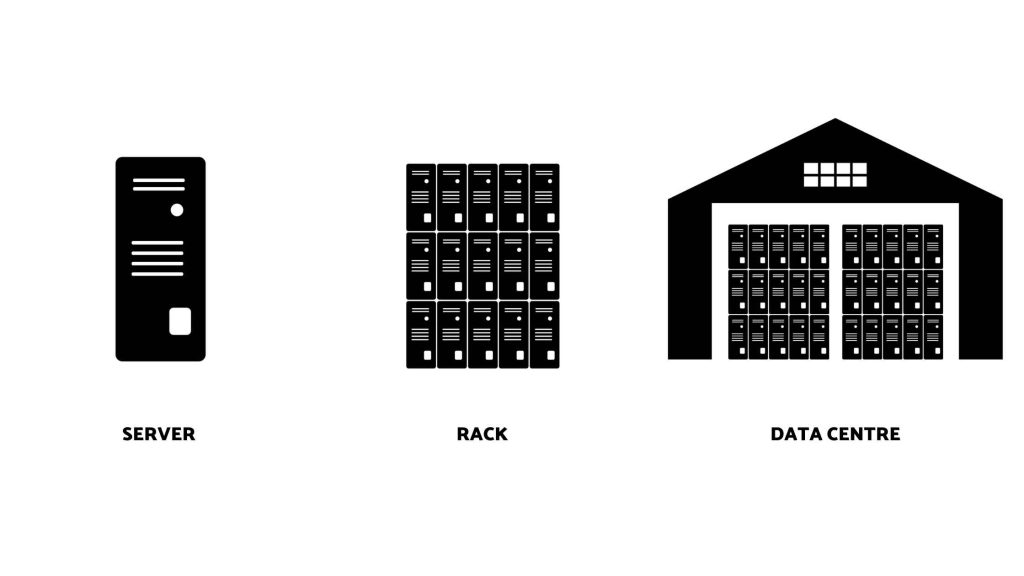Data centre engineers are in high demand across Europe—and the market isn’t slowing down any time soon. As AI, cloud services, and digital infrastructure continue to accelerate, companies are investing in new facilities, expanding existing ones, and urgently seeking skilled professionals to keep operations running smoothly.
For experienced engineers, this presents a real opportunity—not just for job security, but for long-term career growth, salary progression, and exciting work across Europe.
The key? Knowing where the work is and what employers are really looking for.
Contents
- Top 5 established hotspots in Europe
- Top 5 up-and-coming hotspots in Europe
- Data centre engineer salary
- Data centre engineer career progression
- How to take advantage of the opportunity
Top 5 established hotspots in Europe
These locations have been leading the charge in data centre construction and continue to offer stable, high-volume opportunities. This ranking, established by Cushman & Wakefield, takes into account factors such as power availability, renewable energy usage, and capacity under construction, amongst many other factors.
1. London
As the UK’s largest data centre hub, London (including Slough) has a high density of colocation sites and strong investment.
2. Frankfurt
As the UK’s largest data centre hub, London (including Slough) has a high density of colocation sites and strong investment.
3. Amsterdam
With growth returning after the data centre moratorium, demand is picking back up in the Netherlands.
4. Paris
Paris is experiencing consistent growth driven by cloud computing and, of course, artificial intelligence.
5. Madrid
Spain’s capital is fast becoming a southern European hotspot with hyperscale developments and increased co-location demand.
Top 5 up-and-coming hotspots in Europe
These cities are gaining momentum as data centre operators look for locations with easier access to power and water. Those looking for data centre engineer jobs could consider emerging markets like these.
1. Berlin
Berlin ranks in the top ten regions globally when it comes to under construction pre-leased rate, and environmental risk. This means that a high proportion of data centre developments are already pre-leased before completion, signalling strong demand and investor confidence. Berlin also benefits from its proximity to Frankfurt while offering comparatively lower land and energy costs, making it a rising star in the German data centre market.
2. Helsinki
Helsinki’s cold climate significantly reduces the need for artificial cooling, cutting operational costs and emissions. With access to abundant renewable energy sources like hydro and wind power, Helsinki is quickly becoming a model location for green data centre growth in the Nordics.
3. Zurich
Zurich ranks in the top ten regions globally for political stability and fibre connectivity. Switzerland’s neutrality, robust legal system, and secure economic environment make Zurich a trusted location for data centre investments. In addition, its strong fibre network ensures low-latency connections across Europe.
4. Munich
Munich ranks in the top ten regions globally for vacancy percentage – a sign that there is available capacity for immediate deployment. This presents opportunities for companies needing rapid scalability without the long lead times associated with new builds.
5. Oslo
Oslo ranks in the top ten regions globally for environmental risk and renewable power generation. Norway’s vast hydroelectric capacity allows data centres in Oslo to run on nearly 100% renewable energy, appealing to operators with ambitious ESG targets.
Data centre engineer salary
Here’s what you can expect in terms of salary and progression as a data centre engineer:
- Shift engineer £54,643
- Day engineer £60,417
- Shift lead £61,333
- Technical manager £76,538
- Data centre manager £86,625
Salaries in the data centre space continue to grow. Between July 2023 and July 2024:
- 36% of everyone in data centres received a pay rise of 5% or more.
- 14% had an increase of 10% or more.
Want to see more data like this? Download our 2024 Data Centre Salary Survey
Data centre engineer career progression
Example career pathways for data centre engineers:
- DC/Electrical Engineer -> Shift Lead -> Critical Facilities Engineer/Supervisor -> Critical Facilities Manager -> Data Centre Manager
- Operations Technician/Engineer -> Technical Supervisor/Engineer -> Technical Manager/Operations Manager
- Contract Manager > Account Manager > Area Manager
There’s no single route—your next step depends on your goals, whether that’s technical specialisation or team leadership.
Take advantage of the opportunity
Whether you’re actively job hunting or simply curious about what’s next, now’s the time to put yourself in the frame for the best roles:
- Update your CV with relevant certifications and responsibilities.
- Be open to relocation or short-term contract work in key hotspots.
- Build relationships with recruiters who specialise in data centre placements.
- Explore roles that match your experience—and challenge you to grow.
Other insights
-
Is the Data Centre Industry Doing Enough for Women?
We’ve known for a while that a gender imbalance exists in the data centre world. But when only 8% of respondents to our 2025 Data Centre Salary Survey were female – roughly one in twelve – it brought that reality into sharper focus
-
Why Data Centres Are Becoming a Magnet for Young Talent
Young professionals are being presented with the opportunity to be part of a lucrative and rapidly-evolving sector. In our 2025 Data Centre Salary Survey, 1,500 people from around the world shared their compensation packages and feelings towards the sector.
-
2025 Data Centre Salaries
DataX has today, on National Data Centre Day, released the results of its 2025 Data Centre Salary Survey, marking the company’s fifth birthday with its most comprehensive report to date.
-
Shaping Future Talent at UTC Swindon
Activate Learning Education Trust (ALET) are wrapping up the academic year with a series of high-energy Challenge Days, one of which was at UTC Swindon.
-
The Data Centre Power 50
We’re proud to share that Andy Davis, Director at DataX Connect and host of the Inside Data Centre Podcast, has been named in the Datacloud Global Power 50 – a list that recognises 50 of the most influential figures shaping the future of the data center industry.
-
Power, Pricing, and Pipeline: CBRE Report 2025
This article summarises the key takeaways from CBRE’s Global Data Centre Trends 2025 Report, exploring the state of power, inventory, vacancy, absorption, and availability across global markets.
7 responses to “Where the Work Is: Data Centre Engineer Jobs”
-
1
-
you will have an amazing weblog right here! would you wish to make some invite posts on my blog?
-
Great post. I am facing a couple of these problems.
-
Its wonderful as your other posts : D, thanks for putting up. “As experience widens, one begins to see how much upon a level all human things are.” by Joseph Farrell.
-
I have been browsing on-line greater than three hours as of late, yet I never found any interesting article like yours. It’s pretty price sufficient for me. Personally, if all website owners and bloggers made excellent content as you probably did, the net will likely be a lot more useful than ever before. “Dreams have as much influence as actions.” by Stephane Mallarme.
-
I not to mention my guys appeared to be looking at the excellent suggestions from the website while all of a sudden came up with a horrible suspicion I never thanked the site owner for those secrets. My men are already certainly happy to study them and have quite simply been enjoying those things. Appreciation for being quite thoughtful and for selecting varieties of useful subjects millions of individuals are really eager to be informed on. My personal sincere apologies for not saying thanks to you sooner.
-
obviously like your web site but you have to take a look at the spelling on several of your posts. A number of them are rife with spelling issues and I in finding it very bothersome to tell the truth on the other hand I will definitely come back again.



























Leave a Reply